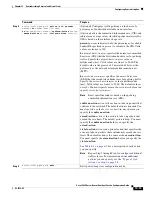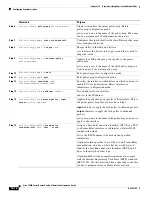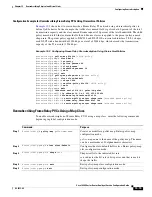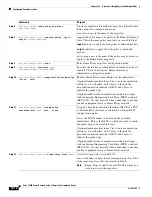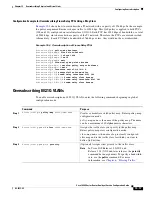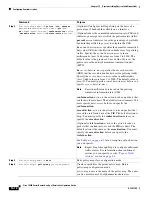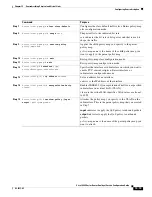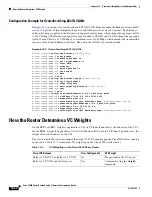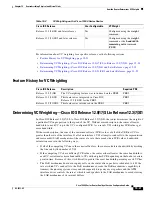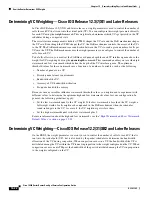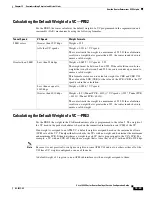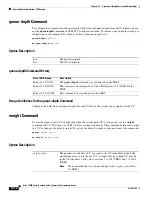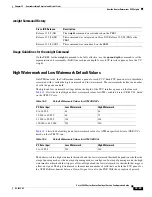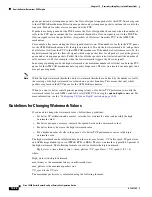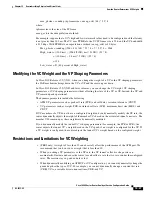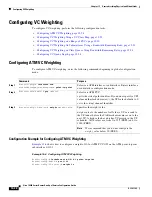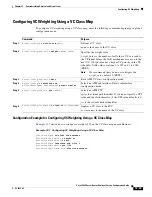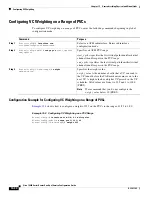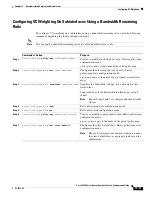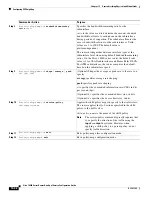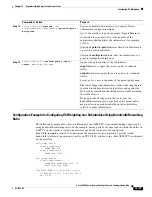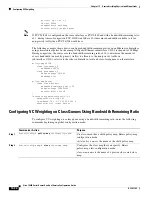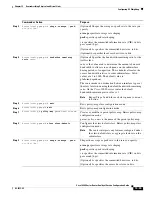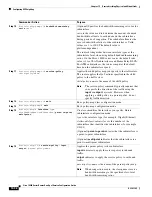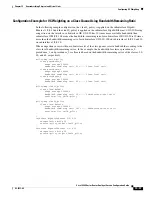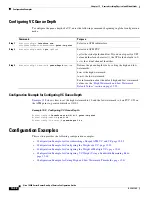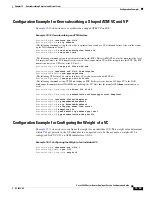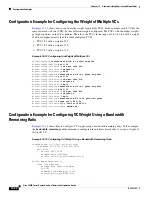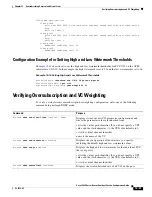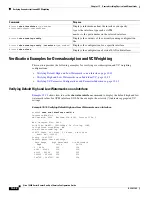
15-27
Cisco 10000 Series Router Quality of Service Configuration Guide
OL-7433-09
Chapter 15 Oversubscribing Physical and Virtual Links
How the Router Determines VC Weights
max_pksize = roundup ((ip fra encap_ovh) / 48) * 53 * 8
where:
ip framesize is the size of the IP frame.
encap_ovh is the encapsulation overhead.
For example, suppose that a VC’s high and low watermark values need to be configured such that latency
is not greater than 100 ms. The VC uses PPPoEoA; the VC IP frame size is 256; and the VC bandwidth
is 512 kbps. With PPPoEoA, encapsulation overhead (encap_ovh) is 40 bytes.
Max_pksize = roundup ((256 + 40) / 48) * 53 * 8 = 7 * 53 * 8 = 2968
High_water = ((100 (ms) – (2968 /512K) ms) * 512K) / (53 * 8)
= ((100 (ms) – 5.8 ms) * 512K) / (53 * 8)
= 114
Low_water = 91 (80 percent of High_water)
Modifying the VC Weight and the VP Shaping Parameters
In Cisco IOS Release 12.3(7)XI1, when you change the weight of a VC or the VP shaping parameters,
the SAR mechanism brings down the VC or VP and the session goes down.
In Cisco IOS Release 12.3(7)XI2 and later releases, you can change the VC weight, VP shaping
parameters, or VC shaping parameters without affecting the state of the VC or VP. Instead, the VC and
VP remain up and operational.
The dynamic parameters include the following:
•
ATM VP parameters such as peak cell rate (PCR) and cell delay variation tolerance (CDVT)
•
VC parameters such as weight, PCR, sustained cell rate (SCR), maximum burst size (MBS), and
CDVT
If VC members of a VP do not have a configured weight and you dynamically modify the VP rate, the
router dynamically adjusts the weight of the member VCs based on the associated tunnel’s new rate. The
member VCs remain up as their weights are dynamically modified.
If you dynamically modify the tunnel VC’s shaping parameters (for example, the PCR or SCR), the
router adjusts the tunnel VC’s weight based on the VC speed, if no weight is configured for the VC. If
a VC weight is configured, the router adjusts the tunnel VC’s weight based on the configured weight.
Restrictions and Limitations for VC Weighting
•
(PRE2 only) A weight of less than 10 can adversely affect the performance of the ATM port. We
recommend that you do not use a weight that is less than 10.
•
When you change VC parameters or the VP rate, the VP tunnel’s effective shape rate can
momentarily fluctuate and cause the router to send cells at a rate that is over or under the configured
rates. The session stays up and no data is lost.
•
When dynamically modifying an ATM VP or VC configuration, you cannot dynamically change the
queue depth or the type of VC. For example, you cannot dynamically change a constant bit rate
(CBR) VC to a variable bit rate-nonreal time (VBR-nrt) VC.

